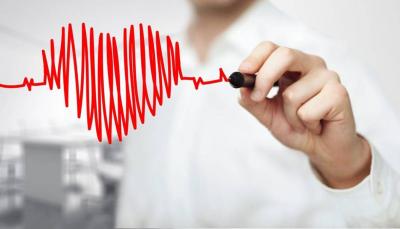A small new study found that risk factors for heart disease may be particularly common among male breast cancer patients, as researchers analyzed medical records of 24 male breast cancer patients aged between 38 and 79 years.
Up to half of them had a family history of breast cancer. During the study, nearly 8 in 10 participants had invasive ductal carcinoma, the most common type of breast cancer, which occurs when the cancer begins to invade the milk ducts and spreads to surrounding breast tissue. In addition, about 9 in 10 patients were overweight, while 58% had high blood pressure and 54% had elevated cholesterol levels.
All patients underwent mastectomy, and 4% received chemotherapy with anthracycline, 8% received targeted therapy for HER2 protein, 16% received radiation therapy, and 71% received hormone therapy. Six of the male participants were diagnosed with stage II metastatic cancer, while three were diagnosed with stage III metastatic cancer. Additionally, an abnormally elevated heart rate was already present in 8% of the patients, and developed in 13% of patients during treatment.
Two patients experienced reduced ejection fraction (a decrease in the amount of blood pumped by the heart), and two others developed heart failure after treatment. The study was reportedly published on Monday as part of the American College of Cardiology's periodic newsletter, which provides cardiovascular care in the virtual course for cancer patients.
Study author Michael Ibrahim, a fourth-year medical student at Georgetown University School of Medicine in Washington, D.C., stated, "Due to the rarity of breast cancer in males, there is no heart and vascular disease data from large clinical trials or population studies." Ibrahim also commented in a press release from the American College of Cardiology’s management committee, "The lack of data from large studies makes it even more essential to tailor the assessment and management of cardiovascular problems individually for each patient suffering from cancer and cardiovascular diseases, with the aim of supporting them through the development of treatments that enhance their survival."
According to the researchers, the high rate of heart problems among male breast cancer patients requires further investigations and studies to better understand the pre-existing risks of heart disease. The study authors also noted that the findings indicate that cardiologists and cardiac oncology specialists need to be involved in the treatment of male breast cancer due to the common risk factors for heart disease and the potential toxic effects on men undergoing breast cancer treatment.




